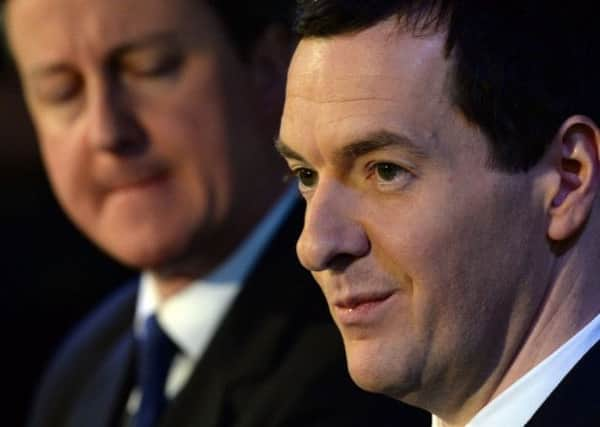Osborne must stay firm on deficit reduction, says IoD


The Institute of Directors (IoD) says most of its members remain strongly supportive of George Osborne’s efforts to put the public finances on a more “stable” footing, amid claims by the opposition that lower-income groups are bearing the brunt of the five-year-old austerity programme.
Simon Walker, Director General of the IoD, said 85 per cent of the organisation’s members support the Chancellor’s plan to run a budget surplus by the end of this parliament in 2020.
Advertisement
Hide AdAdvertisement
Hide AdWalker says in a statement today: “The Chancellor is under immense pressure to loosen the purse strings, but he must hold his nerve.
“If he is going to fulfil his ambition to build a ‘low tax, high wage’ economy he cannot compromise on his plans to eliminate the deficit and start paying down Britain’s mountain of debt.”
Walker said the UK economy had endured “several difficult years”, but now companies were paying higher wages to employees throughout the country.
However, the IoD chief added that even though tackling the deficit “gives Osborne little wiggle-room to reduce the burden of taxation”, it was vital to give a more detailed timescale on the eventual cuts that would embed Britain’s economic success.
“The Chancellor can’t go on a spending spree, but he must use his Autumn Statement to spell out when he will deliver on the tax cuts his party promised in their election manifesto,” Walker said.
“The government has said it will increase the personal allowance, raise the 40p threshold and align national insurance with income tax.
“Setting out how they plan to do this would help demonstrate the gain, after the pain, of spending cuts.” Walker said that in the most recent poll after the general election 85 per cent of canvassed IoD members said they agreed with the government’s plan to run a budget surplus within five years.
Separately, the IoD called for safeguards to be announced by the Chancellor in Wednesday’s Autumn Statement on the new apprenticeship levy.
Advertisement
Hide AdAdvertisement
Hide AdWalker said the levy should not affect small businesses and the money raised not “lost in bureaucratic administration of the scheme”.
The IoD’s backing of deficit reduction comes as City economists have raised doubts over whether Osborne can achieve his budget surplus amid renewed economic headwinds.
New data last Friday showed government borrowing ballooned to £8.2 billion last month, the worst October for the public finances since 2009,
Howard Archer, chief UK economist at IHS Global Insight, said yesterday: “It does look ever more questionable as to whether the Chancellor can achieve a fiscal surplus of £10bn in 2019/20.”